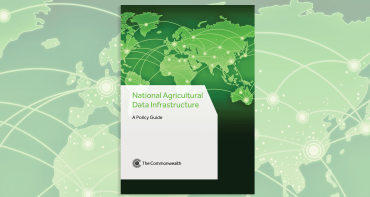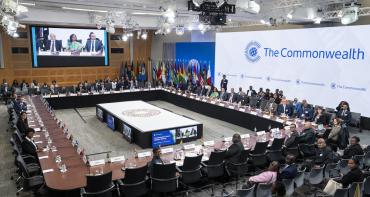An audience of trade experts, High Commissioners and media gathered yesterday to debate the trade prospects for 53 member countries

Trade between Commonwealth countries has seen phenomenal growth, rising from about $200 billion in 2000 to more than $600 billion today. And it is likely to surpass $1 trillion by 2020, the lead author of a major new report has stated. Dr Mohammad Razzaque presented the report’s main findings to an audience of trade experts, High Commissioners and media that gathered yesterday to debate the trade prospects of the association’s 53 member countries.
Dr Razzaque, Head of International Trade Policy at the Commonwealth Secretariat, explained that the research demonstrates a clear Commonwealth trade advantage, with bilateral costs for trading partners in Commonwealth countries on average 19 percent less than between those in non-Commonwealth countries.
“It is really exciting to read about the Commonwealth effect. Sometimes, it is taken for granted that you have shared regulatory frameworks. The culture gap has been significantly reduced to give trade facilitation new meaning,” said Dr Mukhisa Kituyi, Secretary-General of UNCTAD, the United Nations Conference on Trade and Development. He also spoke about the digital revolution, urging the trade community to articulate the challenges of e-commerce and stating that governments hoping to benefit from e-commerce should stabilise regulatory frameworks around broadband infrastructure.
The event at Marlborough House in London featured a high-level panel discussion. In addition to Dr Kituyi, participants included the Chairman of the Council of Commonwealth Societies, Lord Howell, and the Commonwealth’s Secretary-General, Kamalesh Sharma. Their discussion centred on the role and value of the Commonwealth in a fast changing global trade landscape.
Commonwealth Secretary-General Kamalesh Sharma stressed the importance of countries building sustainable growth through inclusive trade systems, saying: “We need to get away from a system where multilateralism begins by involving everyone and ends up involving very few.” He added: “Our advocacy for the poorest and most vulnerable is now widely accepted by leading global institutions, as is our insistence on equitable outcomes for all human communities irrespective of size and endowment.”
The panel acknowledged that trade has a major role to play in the fulfilment of the new Sustainable Development Goals. But many challenges lie ahead. Loss of momentum on revitalising multilateral trade talks, threats posed by climate change, the rise of mega-trading blocs and slow growth are just some of the factors affecting trade flows and patterns, the speakers noted.
A question from the audience, “how can we as a Commonwealth family build on this report and tackle some of the opportunities that Commonwealth trade can offer to increase economic development?” prompted the panel to discuss how trade can play a greater role at the 2018 Commonwealth Heads of Government Meeting in the United Kingdom. Commonwealth Secretary-General Kamalesh Sharma concluded by assuring the audience that the report should be seen as a “baseline document for the future”. “We need to actively engage with the private sector. This culture of thinking business has to percolate.”
Social media
Join the conversation online: @commonwealthsec #TradeFlagship
How can we unleash the #Trade potential of the #Commonwealth? #TradeFlagShip pic.twitter.com/aZ2CowUPar
— The Commonwealth (@commonwealthsec) January 26, 2016
How can #Commonwealth help member states resolve their #trade challenges? - Dr M Razzaque #TradeFlagShip
— The Commonwealth (@commonwealthsec) January 26, 2016
#TradeFlagShip - Is there a #Commonwealth effect? https://t.co/oGfWXesalp pic.twitter.com/GSujTochoV
— The Commonwealth (@commonwealthsec) January 26, 2016



